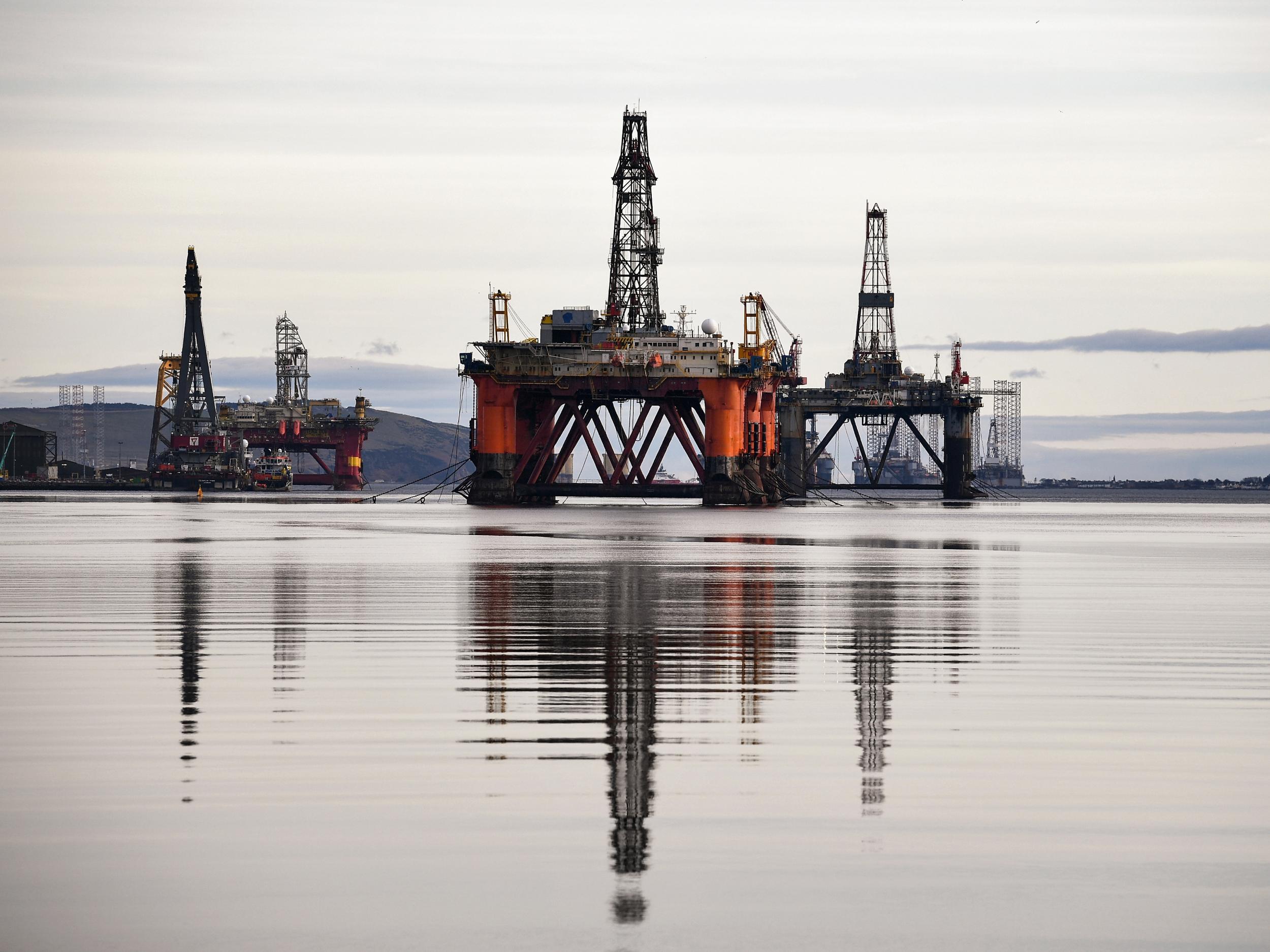Radioactive waste from Shell oil rigs could damage environment, groups warn
Oil giant wants to leave 64 concrete storage cells containing toxic oil and contaminated sediment on seabed

Your support helps us to tell the story
From reproductive rights to climate change to Big Tech, The Independent is on the ground when the story is developing. Whether it's investigating the financials of Elon Musk's pro-Trump PAC or producing our latest documentary, 'The A Word', which shines a light on the American women fighting for reproductive rights, we know how important it is to parse out the facts from the messaging.
At such a critical moment in US history, we need reporters on the ground. Your donation allows us to keep sending journalists to speak to both sides of the story.
The Independent is trusted by Americans across the entire political spectrum. And unlike many other quality news outlets, we choose not to lock Americans out of our reporting and analysis with paywalls. We believe quality journalism should be available to everyone, paid for by those who can afford it.
Your support makes all the difference.Enormous concrete storage units that Shell wants to abandon in the North Sea contain radioactive waste which campaigners fear will eventually leach into the surrounding water, The Independent has learned.
European authorities are considering Shell’s application for an exemption to legislation requiring companies to return the marine environment to its natural state after extraction operations.
Shell wants to leave 64 concrete storage cells, which were part of offshore drilling rigs, on the seabed.
Each is the size of seven Olympic swimming pools, and several still contain toxic oil and contaminated sediment.
“Part of the problem is that some of the materials are radioactive,” said Robert Armour, a non-executive director at the Oil and Gas Authority.
“They have been brought up from deep underground and the concrete they are encased in is brittle.
“The materials inside the concrete are a mixture of solids and liquids – and there is a risk that the concrete will rupture during any operation to remove them. It’s a very difficult problem.”
Waste materials with elevated levels of radioactivity are routinely created by the oil and gas industry through the drilling process as particles such as uranium, thorium and radium are drawn to the surface.
This is known as Norm (Naturally Occurring Radioactive Materials) waste in the industry – and can become concentrated in sludge in oilfield tanks.
The radioactive waste has been connected to bone cancers and can pose a health risk through external exposure as well as if it is ingested or inhaled.
Shell says the safest option for decommissioning is to leave the concrete structures in place and undisturbed, but this has been opposed by environmental groups, which have said the company has provided “insufficient information” to support its case.
Dr Lyndsey Dodds, head of marine policy at WWF, is concerned that the decommissioning process is biased towards cheaper options to avoid expensive removal costs.
She said: “The proposal to leave the concrete structures to degrade, disintegrate and collapse onto the seabed over time will result in disturbance and pollution from the hydrocarbon-contaminated drill cuttings and also release the contents, including any radioactive materials, into the marine environment.”
Environmental groups say Shell has downplayed the risk posed by the radioactive material in the tanks.
Though Shell mentioned the Norm waste in its decommissioning proposal to the UK government in 2017 – it does not mention the radioactive material in the formal documents that the UK has submitted to the commission that oversees the enforcement of the relevant European legislation.
Greenpeace scientists are also critical of the methods Shell has used to estimate radioactivity in the concrete tanks, saying estimates were made using a low number of samples.
Dr Doug Parr, chief scientist for Greenpeace UK, said: “The oceans are increasingly fragile and threatened by waste, over-exploitation and climate change. They are nobody’s dustbin.
“The waste we try to throw there won’t conveniently stay put, and has historically found ways of returning to haunt us sooner or later. This mixture of crude oil, drilling waste and radioactive material is Shell’s mess.
“No one is completely certain what’s down there, either in terms of chemical contamination or radioactivity, and so we don’t know how much of a risk it poses to the environment of the North Sea. But we do know that Shell made a lot of money creating the mess, and they can afford to spend a little cleaning it up.”
Under UK regulations, concentrated Norm waste has to be handled with protective equipment and disposed of in specialised facilities.
A government report from 2014 estimated that the annual volume of Norm waste sent for specialist treatment in the UK was 300 tonnes, with half of that total coming from the offshore oil and gas industry.
An environmental impact assessment published by Shell in 2017 said the radioactivity of the sediment in the concrete structures may have a “moderate negative” impact on the environment if they are left in place.
A spokesperson for Shell said: “After years of study and independent verification we know the sediment in the concrete cells contains no significant amounts of non-biodegradable compounds and will be safely contained for several hundred years.
“Independent laboratories have scrutinised the samples finding only very low levels of Norm, which were below the level of scientific concern.”
Earlier this year, Greenpeace’s investigative unit revealed that the German government had written to the UK about Shell’s application for exemption expressing concerns that the methodology used was biased in favour of leaving the installations in place.
Germany also said that Shell had failed to properly account for long term risks to the environment and shipping traffic.
Join our commenting forum
Join thought-provoking conversations, follow other Independent readers and see their replies
Comments